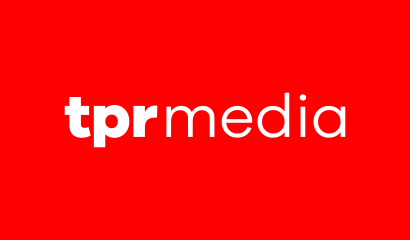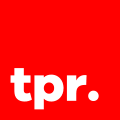Modern Slavery Policy for TPR Holdings Trust T/A TPR Media
- What is the purpose of this policy?
We will limit risks of modern slavery practices in our business and supply chain.
This policy supports our commitment and underpins our annual modern slavery statement
(TPR.media/modernslaverypolicy).
- Who this policy applies to?
This policy applies to you if you are involved in our business, including if you are an employee, director, officer, labour hire staff, contractor or other representative of our business or of any business in our supply chain.
While this policy is not part of any contract you may have with us, you are expected to comply with it.
If you do not comply with this policy, we may end our business relationship with you and if you are an employee, you may be disciplined or dismissed.
- What is modern slavery?
Modern slavery is depriving a person of freedom for commercial gain and in violation of fundamental human rights.
It describes situations where offenders use coercion, threats or deception to exploit victims and undermine their freedom. Modern slavery involves serious exploitation, not substandard working conditions or the underpayment of workers although this may be unlawful for other reasons. Modern slavery can take many forms including:
(a) Slavery – owning a person, trading in slaves or financing slave trading (ie, human trafficking)
(b) Forced labor – forcing a person to work by coercion or threats (and servitude is when that person’s freedom is significantly restricted)
(c) Forced marriage – a marriage without free and full consent – eg, due to lack of understanding or duress/coercion
(d) Debt bondage – a person works to pay off a large debt, for an unlimited time or where the value of the work is not applied to the debt
(e) Deceptive recruiting – a recruiter charges a fee for the job offer. confiscates identity documents. deceives a person about personal freedom or their ability to leave the job
(f) Child labour – not always unlawful but not tolerated by us when ii involves exploiting
children, depriving them of education, making them work in unsafe working environments
Modern slavery can be complex and multi-faceted and can be difficult to spot.
- What are Indicators of modern slavery practices?
Modern slavery indicators may include where a person:
(a) is not in possession of their own passport, ID or travel documents;
(b) is acting as though they are being instructed or coached by someone else;
(c) allows others to speak for them when spoken to directly;
(d) is dropped off and collected from work;
(e) is withdrawn or appears frightened or have physical indicators of slavery, such as injuries;
(f) unable to contact friends or family freely;
(g) has limited social interaction or contact with people outside their immediate environment;
(h) story contains obvious errors;
(i) acts with hostility or have difficulty in concentrating due to trauma;
- U) has few possessions;
(k) has little or no control over their finances or no access to a bank account, or they are being
significantly overcharged for their accommodation; and
(I) is living in a very poorly maintained and overcrowded place.
These indicators are not exhaustive and do not necessarily mean there are modern slavery
practices. Sometimes there may be other reasons or circumstances that indicate that something
is not right.
- Why do we want to limit risks of modern slavery practices?
Limiting modern slavery practices makes good business sense, protecting our workers and our
reputation.
It also supports us in assessing and addressing modern slavery risks as required by modern
slavery legislation.
- What are our responsibilities?
We will endeavor to:
(a) prepare a modern slavery statement as required by Australian law;
(b) identify and address modern slavery risks in our business and supply chain; and
(c) take steps to raise your awareness of modern slavery risks, including by having this policy.
- What are your responsibilities?
You must take all reasonable steps to ensure our business and supply chain is free of modern
slavery practices.
However senior you are and regardless of your business relationship with us, you must pay close attention to the high-risk areas identified in our Modern Slavery Statement, particularly supply chain and outsourcing in jurisdictions without adequate safeguards.
Some areas of the business are likely to have more exposure than others, including procurement and sourcing, human resources, finance, risk, sustainability, projects, legal and leadership.
Examples of specific responsibilities include:
(a) participating in all training, including in this policy;
(b) leading by example by making appropriate checks on all employees, recruitment agencies,
suppliers, etc to ensure we know who is working for us;
(c) remaining alert to indicators of slavery (see above);
(d) using only approved contracts which include modern slavery clauses; and
(e) obeying our instructions regarding modern slavery.
Turning a blind eye is unacceptable and if you reasonably suspect there may be modern slavery, report it under this policy.
- How do I report slavery concerns?
If you have a reasonably held suspicion of modern slavery practices, discuss your concerns with
Scott Nelson Managing Director (scott@tpr.media), who will decide a course of action and
provide any further advice.
If there is immediate danger call the police – don’t tackle a situation on your own as dangerous
criminals can be behind modern slavery and human trafficking.
Not all victims may want to be helped and sometimes, reporting a suspected trafficking case puts the potential victim at risk, so it is important that unless there is immediate danger, you discuss your concerns first with Scott Nelson Managing Director before taking any further action.
Keep your eyes and ears open-your awareness and actions may stop someone from being
exploited or abused.
If you have any concerns regarding labor conditions or workplace grievances and would prefer to raise these anonymously these can be sent via post to TPR Media, Unit 1/667 Ipswich rd Annerley.
- Who is responsible for this policy?
Our board of directors are responsible for this policy and will review reports of material slavery
concerns.
The policy may be amended, replaced or removed and the current version can be found here:
TPR.media/modernslaverypolicy.




